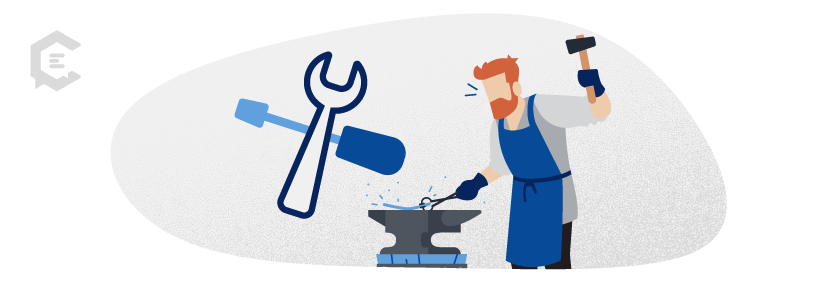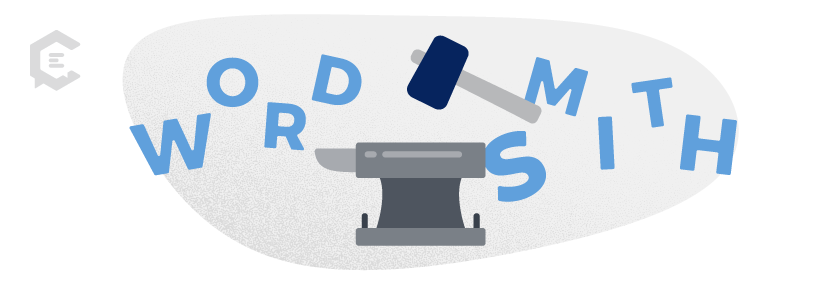Wordsmith. You hear the word tossed around in chatty writer’s groups and on sassy author profiles. But, what the heck is it exactly, and are you one?
Well, maybe. Let’s dig into the definition and history of this popular writer’s moniker and how we can use it in our own wordy-world.

What Is a Wordsmith?
In the spirit of words, let’s use some dictionaries to break it down.
Merriam-Webster says…
A wordsmith is someone who works with words, or an especially skilled writer. Based on this definition, I think any writer who hones their craft and makes a living from wordplay could be called a wordsmith. The Merriam-Webster dictionary says this term was first used in 1873.
Cambridge Dictionary says…
A wordsmith is someone who “has skill using words, especially in writing.” This definition makes me think great orators would be included alongside writers since both are pros at word usage.
Collins Dictionary says…
A wordsmith is a person, especially a professional writer, who both coins new words and uses language skillfully. Excellent! So every time we come up with new expressions and phrases in our writing, we’re being wordsmiths.
Urban Dictionary says…
Surprisingly, this definition is pretty accurate with a side of humor. This source explains that a wordsmith has the ability to “effortlessly string words together” to create smiles, laughter, or admiration and to “make up bullshit on the spot.” Well, depending on the project, this definition is fitting too.
The Backstory of Smithing
Let’s dig a little deeper into the etiology of wordsmithing. If we break it down into word and smithing, we quickly see how this word became synonymous with people who work in words to create new things.
According to Encyclopedia Britannica, smithing is the act of doing metalwork for fabrication or repair. When we think of this classic trade, the idea of forging something new from bars of metal is top of mind. Much like a blacksmith twisting and molding iron or steel to fashion a new tool, writers do the same with words to create thoughts and ideas.
Another step down the rabbit hole can be found in Forge Magazine. Read it with writing in mind. The language used could easily describe the creative mind of a writer: artistic component, craft, creating something out of the ordinary. The first known evidence of blacksmithing is thought to hail from 1350 BC in Egypt, where smiths kept their techniques secret — much like prolific writers, er, wordsmiths.
Playing With Words
We can all agree that wordsmith is a pretty cool noun that deserves more use in our everyday lexicon. You can weave it into online bios, elevator-style intros, and online convos amongst others who finesse words each day. Give these variations a gander.
- Wordsmithing: This active verb refers to the act of shaping words. Use it in place of the word writing to perk up a few ears. I’m off to do some wordsmithing at my desk this morning.
- Wordsmithed: This past-tense verb celebrates the actual doing of writing. When a project is complete, you wordsmithed it. It took five hours, but I wordsmithed my best poem yet.
- Wordsmithery: By far my favorite, using this fancy four-syllable concoction screams word nerd. Refer to your wordsmithery when showing writing samples or exclaim in an upcoming tweet that you’re off to do some wordsmithery on a project. Let the wordsmithery of the day commence! I must fashion new words for your consumption!
Working with fire? Forging? Creating? Molding? Yep, sounds just like a day at your desk as a writer. Happy wordsmithing to you, fellow worker-in-words.
What’s Next in Your Wordsmithing Journey?
If you’re a wordsmith, you have a special skill set that is in high demand. Companies and brands are always looking for talented writers to improve their content creation. If you are one, join our Talent Network to get a leg up. We’ll pair you with the best brands that match your skills and expertise.






